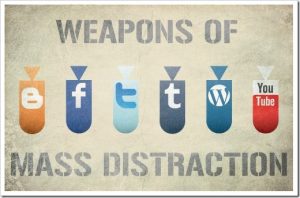To understand the title “Escaping from Bullshit,” one must have an understanding of what is bullshit. We who speak English already know intuitively what it is; otherwise, we would not know when to use the word or what to make of someone who uses it. But apparently from reading essays which attempt to define the term, they only get it partially correct. So I will try to spell it out in such a way that you will say “Of course that’s what it means, it’s obvious.”
To get a handle on what is bullshit, we must start with when the word is used. It is used paradigmatically as an exclamation, more precisely, as an explicative: “Bullshit!” It is a response to some claim or proposal.
For example, in most cities in the US, one must pick up the excrement of one’s pet dog from the sidewalk, grass, or street. I see your dog leaving a pile, and I see you watching him, and after he finishes, you simply walk away. I, in my civic duty, call out to you to pick-up the pile left behind. And you reply that I am mistaken; that pile was left by some other dog. I respond with righteous indignation: “Bullshit, I saw you watching your dog take a dump.”
Now, when I say these words, I am expressing righteous indignation because either what is obvious to me is being questioned, or I am being treated as a fool for saying what was obvious – so, yes, I do wish to say something abusive for this insult to my intelligence and veracity.
Here, then, is my succinct dictionary (lexical) definition of “bullshit”:
It is a ubiquitous dysphemistic exclamation of negative appraisal expressing -– in paradigm cases — righteous indignation in an abusive and vulgar tone. The righteous indignation is about the challenge to one’s veracity.
We can call this the paradigm use of “bullshit.” Other uses are truncations. I mean that it could be used without expressing righteous indignation, but retaining the abusive rejection. And, in some circles, even the abusive element is missing. “Bullshit” becomes simply a vulgar term of rejection.
As I said, the primary use of “bullshit” is as an exclamation. Its secondary use is simply the dysphemistic negative appraisal without expressing the righteous indignation, but now implying a strong conviction of being right in the negative appraisal; otherwise why use a dysphemistic term? And, finally, it is just a vulgar term of negative appraisal.
Why is it ubiquitous? It is a ubiquitous term because it applies to appraising all sorts of things. Using neutral terms, the word “bullshit” is used for the following:
-
It is used to negatively appraise importance, relevancy, and genuineness.
-
It is used to negatively appraise the truth value: factual falsity or logical inconsistency.
-
It is used to negatively appraise the worth of an argument.
-
It is used to negatively appraise the worth of an excuse or justification.
-
It is used to negatively appraise the meaningfulness of a piece of prose.
- It is used to negatively appraise actions, practices, and institutions.
The word “bullshit” is a relatively modern term and it is a term that is not used in polite company. To use it is – well – rude, and perhaps marks you off as not complying with the standards of polite etiquette. Well, etiquette changes, and things like, for example, wearing a hat for a man indoors, especially in someone’s home, seems to be tolerated, ignored, or made nothing of. The word “bullshit” has also received wider usage and tolerance.
In any case, in former times, in polite , especially British, academic circles, if one felt some kind of righteous indignation at someone’s claim, one had a repertoire of words as humbug, poppycock, drivel, and moonshine.
I have particularly in mind a passage in the writings of C. D. Broad, who I consider to be one of the best philosophers in the twentieth century. But my point here is not to praise him, but to focus on how he expressed his rejection of an idea which he felt was to him especially irksome. The idea he was rejecting was the proposition that people should do both physical and intellectual work. This is an idea which was promulgated by some socialists and anarchists, explicitly so by Peter Kropotkin. Broad was a self-conscious snob –- an elitist –- and sarcastically pointed out that chambermaids can get some satisfaction from knowing that they are serving to promote such intellectual gems as himself. Normally, Broad provides arguments for his claims, but, in this case, he resorts to aloof condescension. And blows off the proposal with the word “moonshine.” And he does this, ironically, in a chapter devoted to Spinoza –- a philosopher who made his living by grinding lenses, i.e. by combining intellectual and physical labor.
If you wish to suppress abuse and the expression of righteous indignation, but express the negative appraisal, then, of course, you can use less abusive language or the neutral terms of evaluation.
See Mark Peters, Bullshit: A Lexicon, 2015.




